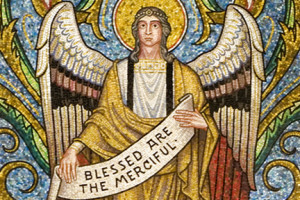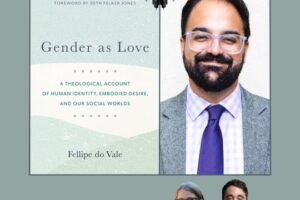Few contemporary theologians have situated their own projects so explicitly against the “many-faced and historically ambiguous phenomenon” of modern liberalism (whether of the theological or the political varieties) as Stanley Hauerwas.[1] It is no small task therefore to set out to defend the claim that Hauerwas (the much-admired paragon of postliberal theology) is in many respects the theological heir of Friedrich Schleiermacher (often deemed “the father of Protestant liberalism”). That Nicholas M. Healy, professor of theology and religious studies at St John’s University, offers just such a thoughtful and lucid defense of this seemingly counter-intuitive claim is one of the many significant contributions of his most recent publication: Hauerwas: A (Very) Critical Introduction.
The central thesis of Healy’s (very) critical assessment of Hauerwas’s theological project is the conviction that “Hauerwas’s overriding concern for ethics (and, to a lesser degree, apologetics) so dominates his treatment of Christian doctrine that he treats doctrine inadequately and/or systematically distorts it… Put yet another way, Hauerwas’s ecclesiocentric thinking distorts to the extent that it fails to be sufficiently theocentric” (16). Whereas “traditional” theology (Healy’s term) is concerned primarily with God,[2] the center of Hauerwas’s theological system is his account of the church. By Healy’s estimation, this over-extension of ecclesiology (and the corresponding diminution of theology proper) results in a series of methodological, socio-theoretical and theological missteps, treated by Healy in chapters three, four and five respectively.
In chapter two (“The Church, the Center”), Healy offers a general introduction to the logic of Hauerwas’s thinking, focusing especially on the role of the church in Hauerwas’s theology and the extent to which Hauerwas’s account of the church remains dependent upon a set of socio-theoretical assumptions concerning the nature of personal identity. As well as defending the rather uncontroversial claim that Hauerwas’s theological project is centered upon the church, Healy provides his readers with a helpful introduction to the by-now consecrated Hauerwasian lexicon: treating in turn the significance of “narrative,” “virtue,” “character” and the specter of “Constantinianism” in Hauerwas’s thought.
In chapter three (“An Ecclesiocentric Method”), Healy locates Hauerwas’s ecclesiology within a modern methodology, defending the above-mentioned thesis that “a comparison with Friedrich Schleiermacher reveals many common elements, both methodologically and materially, such that Hauerwas can usefully be read in relation to Schleiermacher, as Marx was to Hegel” (15). Healy supports this provocative claim with a number of measured similarities between these two thinkers, noting in particular the extent to which the “turn to the church” in both thinkers results in a revision of the position of Christian doctrine in relation to the life of the church (50).
In chapter four (“The Empirical Church and Christian Identity”), Healy switches gears from directly theological matters “to consider the empirical issues involved in Hauerwas’s argument and, in their light, the adequacy of the social-theoretical apparatus he develops” (15). For Hauerwas, the church constitutes an alternative polis, offering the world “an alternative to the world’s justice” by embodying the narrative identity of Jesus Christ (75). According to the terms of Hauerwas’s account, therefore, “our characters as individual Christians must be different from those around us in a way that is identifiable as Christian, by our living lives that embody and display the truthfulness of the story of Jesus.” Moreover, only if there are many such individuals within a congregation can we say that a congregation is identifiably Christian, and “only if there are many such congregations can we say ‘the church’ embodies and displays the truthfulness of the story of Jesus” (82-83). The burden of Healy’s argument in this chapter is to disprove the kind of uniformity of Christian identity necessary to get Hauerwas’s argument off the ground. Drawing upon recent ethnographic research,[3] Healy suggests that congregations’ identities are simply “too diverse in relation to other congregations, their identities too diverse within themselves, and their members’ identities too diverse or confused, for [Hauerwas’s] socio-theoretical framework to be adequate to the realities of church life” (16).
In the final chapter (“Hauerwas’s Theology”), Healy returns to the matter of Hauerwas’s theology, tracing the extent to which his method, social theory and ecclesiocentricism result in the distortion of certain key theological themes. Of particular importance for Healy’s analysis of Hauerwas’s overall program is the latter’s seeming inability (or at the very least reluctance) to provide an adequate account of the role of divine agency in the life of the individual Christian and the work of the church. This failure to adequately distinguish between the activity of God and the church’s efforts to faithfully embody the story of Jesus is especially evident in Hauerwas’s treatments of grace, justification and sanctification.
Healy’s volume marks a significant contribution to the burgeoning literature surrounding the life and theological legacy of “America’s best theologian.”[4] While readers looking for an exhaustive overview of the Hauerwasian corpus may find Healy’s (very) critical introduction somewhat underwhelming—as Healy acknowledges, many important areas of Hauerwas’s work, such as his writings on nonviolence, medical ethics and disability, are altogether missing from Healy’s account—those seeking a careful and substantial theological engagement with Hauerwas’s project will be richly rewarded. The question however that will no doubt divide Healy’s readers is this: to what extent does Healy’s systematic-theological agenda do violence to a theological corpus that, in many respects, actively resists any and all attempts at systematization? Those who maintain, along with Hauerwas, that the practical enterprise of theology defies systematization will find little sympathy, for instance, with Healy’s insistence that Hauerwas’s concern for ethics ultimately distorts his treatment of doctrine. However, those committed to what Healy terms “traditional theology,” even those generally sympathetic to Hauerwas’s ethical and ecclesial agendas, will gladly welcome Healy’s attempt to locate Hauerwas’s practical concerns within more sustained theological reflection upon “God and all things in relation to God.” Rather than compromising Hauerwas’s project, the latter stands to gain from the proper subordination of ethics and ecclesiology to the one from whom and for whom such considerations find their ultimate theological significance.
The Bottom Line: Healy’s (very) critical introduction offers a provocative and theologically astute engagement with one of America’s most influential theologians.
[1] Hauerwas, A Community of Character: Toward a Constructive Christian Social Ethic (Notre Dame: Univsersity of Notre Dame Press, 1981), 77. [2] Healy refers especially to Thomas Aquinas’s treatment of sacra doctrina: “Sacred doctrine does not treat of God and creatures equally, but of God primarily; and of creatures only so far as they are referable to God as their beginning and end” (ST Ia, q.1, a.3, ad 1; cited in Healy, 42). [3] Jerome Baggett, Sense of the Faithful: How American Catholics Live Their Faith (Oxford: Oxford University Press, 2009). [4] Hauerwas was awarded this title by Time magazine in September of 2001. Hauerwas famously responded to this honor by noting, “Best is not a theological category.” See Hauerwas, Hannah’s Child (Grand Rapids, Michigan, William B. Eerdmans, 2010), ix.
Review by Jordan Hillebert (jch22@st-andrews.ac.uk)
University of St Andrews





Leave a Reply
Your email is safe with us.